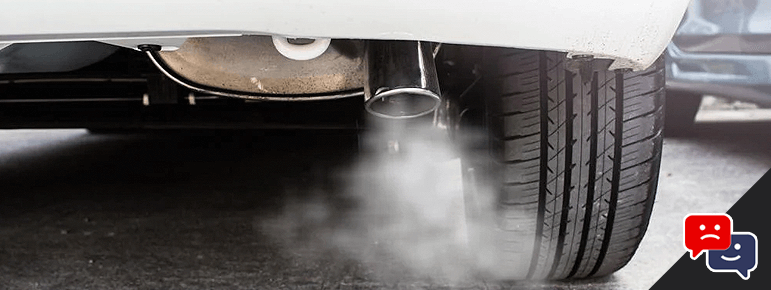Last Updated on April 4, 2024
Catalytic converters have an important role to play in nullifying harmful compounds produced as a byproduct of the internal combustion engine. How long do catalytic converters last, and how do you know when to replace it?
Catalytic converters generally last 10 years, sometimes longer with the proper car maintenance. If your converter is bad or clogged, then and only then should it be replaced. Having a properly functioning catalytic converter is important for both engine performance and the environment.
As a car owner, you know how important it is to take good care of your vehicle. From regular oil changes and engine tune-ups, to keeping up with the latest brake pads and tires.
Fact is, there’s a lot that goes into keeping a car running smoothly over time. One part of your car that doesn’t always get as much attention as other components yet still plays an important role in its operation is a catalytic converter.
But how long do these converters actually last? In this blog post, we’ll break down what catalytic converters are, why they’re so important for your vehicle’s performance.
Then we’ll answer the question how long should you expect your converter to last? Let’s dive into this!
How Long Do Catalytic Converters Last?
Catalytic converters neutralize harmful compounds from your tailpipe, and they do so effectively for up to 10 years. For reference, that’s about 100,000 miles of travel that the converter can handle before it will need replacement.
Of course, operational issues and environmental conditions can cause it to wear out sooner. Which is why keeping your engine in good condition is the best way to protect your converter.
A sub optimal engine can cause extensive damage to a catalytic converter, and repairing the converter isn’t an easy task.
Generally, to repair a damaged converter requires techniques such as using fuel additives or removing the catalytic converter and physically cleaning it. Some mechanics even recommend driving your car hard to help it reach a high operating temperature.
How Does a Catalytic Converter Get Damaged?
Fact is, prevention is key when it comes to making sure your catalytic converter stays healthy and runs efficiently. Things like engine misfiring and faulty oxygen sensors can lead to damage if the converter is continually exposed to such conditions over time.
Catalytic converters also run the risk of becoming clogged with debris and soot if your car has an oil consumption problem.
Although rare, but possible – a clogged catalytic converter can overheat causing it to potentially explode.
In general, be aware of the following issues that can damage a catalytic converter:
- Misfiring engine – Unburned fuel funneling into the converter will react with it and generate significant heat, causing damage.
- Oil leak – Oil leaks can contaminate the converter and cause it to fail.
- Gasket leaks – Much like oil, coolant leaks from a cylinder head gasket can cause contamination, damaging the converter and rendering it useless.
- Hard impacts – Damage to your converter can occur if you hit a rock or something strikes the underside of your vehicle.
- Corrosion – While uncommon, unaddressed corrosion can wear a hole in the catalytic converter.
How to Tell If Your Converter Is Going Bad?
There are some telltale symptoms that inform you when your converter is starting to die off.
First and the most obvious sign your catalytic converter is going bad is an illuminated check engine light. Fortunately, it’s quick and inexpensive to have the trouble codes scanned. Most local auto parts stores will happily do this for you for free.
If any of the following codes appear when scanned, then it’s indication you have a bad catalytic converter: P0420, P0421, P0422, P0423, P0424, P0425, P0426, P0427, P0428, P0429, P0430, P0431, P0432, P0433, P0434, P0435, P0436, P0437, P0438, P0439.
Another telltale sign of a bad converter is a rotten egg smell. Sulfur passing through the converter is a sure sign it needs replacing.
Often associated with a check engine light is poor engine performance. While there can be a million causes, the converter can be responsible for reduced acceleration.
And finally, to round it all off, being unable to pass an emissions test might be the biggest telltale sign that you have a bad converter.
What Are The 3 Most Leading Failures of a Catalytic Converter?
Catalytic converters are essential parts of a car’s exhaust system, but they can be prone to failures. These typically fall into 3 categories: Overheating due to blocked or restricted flow; melting because of extreme heat levels; and physical breakage from an impact or contact with the road surface.
Is Premium Gas Better for a Catalytic Converter?
Yes, using premium fuel is an excellent way to maximize your catalytic converter’s lifespan. It allows for advancing the timing of ignition giving the fuel longer burn time.
This allows for far more efficient heat transfer in the combustion chamber. The result is cooler exhaust gases passing through the converter.
Final Thoughts: How Long Do Catalytic Converters Last
In short, unless your catalytic converter is broken or clogged and needs replacement, there’s no real benefit to replacing it preemptively.
Keep up with regular car maintenance and that should help extend the lifespan of your converter well beyond the average 10 years.
A properly functioning catalytic converter is important for both engine performance and the environment, so don’t neglect this vital component of your car.

Managing Editor
Christopher is an automotive technical writer. When he’s not at the local autocross event, he can often be found working on one of his cars. Specializes in automotive class action law, industry trends, and automotive maintenance. Email me direct, or learn more about us

